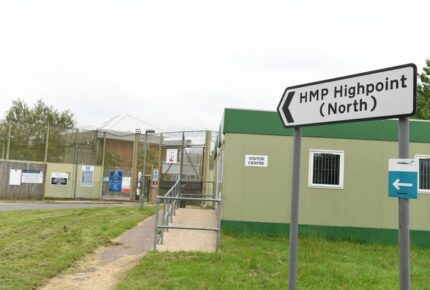

Conspiracy to handle stolen goods is a significant offence in the UK, carrying potential severe penalties including imprisonment. This crime involves an agreement between individuals to receive, possess, sell, or dispose of goods that are known to be stolen. If you or someone you know is facing charges related to conspiracy to handle stolen goods, it is crucial to seek legal advice. This article aims to demystify the offence of conspiracy to handle stolen goods. In this article, we will provide an overview of the offence, list typical examples of the offence, outline the legal process if suspected, discuss sentencing guidelines including factors that could aggravate or mitigate the offence, and explore the likelihood of imprisonment for first-time offenders.
What is the offence of conspiracy to handle stolen goods in the UK?
In the UK, conspiracy to handle stolen goods is defined under the Theft Act 1968 and the Criminal Law Act 1977. It involves an agreement between two or more persons to receive, retain, dispose of, or assist in disposing of stolen goods. This offence differs from simple handling of stolen goods, as it requires proof of an agreement or plan to commit the crime, rather than the actual handling of the goods.
The law is designed to target not just those who physically handle stolen items but also those who are part of the planning or facilitating such activities. The offence can be committed even if the stolen goods are not ultimately received or disposed of, as the crux of the crime lies in the agreement or conspiracy itself. This broad scope allows law enforcement to tackle the issue at various stages, from planning to execution.
Importantly, an individual can be found guilty of conspiracy to handle stolen goods even if they did not personally benefit from the crime or were not directly involved in the handling of the stolen items. The key element is their involvement in the agreement or plan to deal with stolen goods.
What are some examples of conspiracy to handle stolen goods offences in the UK?
Examples of conspiracy to handle stolen goods in the UK include:
- agreeing to store stolen electronics for later sale
- planning to transport stolen vehicles across borders
- coordinating the sale of stolen art or jewellery
- arranging for goods to be stored on your property after they are stolen
- volunteering to be the driver of a van containing boxes of stolen items
What happens if you are suspected of committing conspiracy to handle stolen goods in the UK?
When someone is suspected of conspiracy to handle stolen goods in the UK, a series of legal processes unfold. Initially, an investigation is conducted by the police, which may involve gathering evidence such as surveillance footage, financial records, and witness statements. If there’s sufficient evidence, the police will arrest and interview the suspects. It is very important to have legal representation during police interviews, as anything said can be used as evidence.
After the investigation, if there is enough evidence to suggest a reasonable chance of conviction, the Crown Prosecution Service (CPS) may decide to prosecute. Conspiracy to handle stolen goods is a serious offence, typically tried in the Crown Court, where more severe penalties can be imposed compared to Magistrates’ Courts.
The legal process includes several stages, starting with a plea hearing where the defendant can plead guilty or not guilty. If they plead not guilty, the case proceeds to trial. During the trial, the prosecution must prove beyond reasonable doubt that there was a conspiracy involving the defendant to handle stolen goods. The defence will present their case, challenging the prosecution’s evidence and presenting any mitigating factors.
Evidence presented may include digital communications indicating a conspiracy, testimonies from co-conspirators or witnesses, and physical evidence linking the defendant to the stolen goods. The defence might challenge the reliability of evidence, argue the absence of a genuine agreement, or present evidence showing the defendant’s lack of knowledge or involvement in the conspiracy.
If found guilty, sentencing will follow, taking into account various factors including the defendant’s role in the conspiracy, the value of the stolen goods, and any previous criminal record. If acquitted, the defendant is released without penalty.
Throughout this process, legal representation is essential. An experienced solicitor can provide advice, help navigate the complex legal procedures, and represent the defendant’s interests, aiming to ensure a fair trial and the best possible outcome.
What is the sentence for conspiracy to handle stolen goods?
The sentence for conspiracy to handle stolen goods in the UK varies depending on several factors. Under the Theft Act 1968, the maximum penalty can be up to 14 years’ imprisonment, reflecting the seriousness of the offence. Sentences are determined by the severity of the crime, the value of the stolen goods involved, and the defendant’s role in the conspiracy.
Aggravating factors that can lead to harsher sentences include a high value of stolen goods, use of violence or threats, evidence of a sophisticated or professional operation, and previous convictions for similar offences. The involvement of vulnerable individuals, either as victims or participants in the conspiracy, can also aggravate the sentence.
On the other hand, mitigating factors may lead to more lenient sentences. These include a lesser role in the conspiracy, genuine remorse, efforts to make amends, such as returning the stolen goods or cooperating with the authorities, and a lack of previous convictions. A defendant’s personal circumstances, such as family responsibilities or health issues, may also be considered.
In addition to imprisonment, sentences can include fines, community orders, or suspended sentences. In some cases, the court may impose a combination of these penalties. The court also has the power to order confiscation of assets derived from or used in the commission of the crime.
Note that each case is unique, and the sentencing will reflect the specific circumstances of the offence and the offender. Legal representation can significantly influence the outcome, as a skilled solicitor can effectively present mitigating factors and argue for a more favourable sentence.
The Sentencing Council provides guidelines that judges follow in determining sentences, but judicial discretion plays a crucial role in tailoring the sentence to the individual case. This discretion allows for a nuanced approach that takes into account the complexities of each situation.
Will I go to prison if it is my first time committing conspiracy to handle stolen goods?
Whether a first-time offender will receive a prison sentence for conspiracy to handle stolen goods in the UK depends on various factors, including the seriousness of the offence and the specific circumstances of the case. While a first-time offender may receive some leniency, the nature of the crime means that a custodial sentence is still possible, especially if the offence is considered severe.
The Sentencing Council’s guidelines provide a framework for judges to determine appropriate sentences. For less serious cases, especially where the value of the stolen goods is low and the offender’s involvement is limited, alternatives to prison, such as community orders or suspended sentences, may be considered. In these instances, demonstrating remorse, taking responsibility for the actions, and showing a willingness to comply with non-custodial measures can be influential.
However, for more serious conspiracies, particularly those involving high-value goods or sophisticated planning, even first-time offenders face a significant risk of imprisonment. The court considers the need to deter others from committing similar offences, protect the public, and uphold the law.
First-time offenders must seek legal advice and representation. A skilled solicitor can argue for mitigating factors and present the case in the most favourable light, potentially influencing the court towards a non-custodial sentence. Additionally, legal representation can assist in navigating the complexities of the legal system and ensuring the offender’s rights are protected throughout the process.
Ultimately, while a first-time offence may be viewed more leniently, the seriousness of conspiracy to handle stolen goods means that the possibility of a custodial sentence cannot be ruled out, underscoring the importance of expert legal guidance.
Where to get further help
Here we have provided an overview of the offence of conspiracy to handle stolen goods in the UK, including its definition, examples, legal process, sentencing, and considerations for first-time offenders. But sometimes, just having this information is not enough. If you or someone you care about is seeking more information or facing such charges, contact Stuart Miller Solicitors today for a free and friendly consultation. Our experts have decades of combined experience in this area of criminal law and we can provide considerable guidance and support throughout the legal process.
OUR COMMITMENTS TO YOU:
-
Responsive
A legal expert will consult you within 24 hours of making an enquiry.
-
Empathetic
We will always treat you with trust, understanding and respect.
-
Specialised
Your case will be handled by an expert who specialises in your type of offence.
-
Proactive
We will take early action to end proceedings as soon as it is practically and legally possible to do so.
-
Engaged
You will be kept updated on your case at all times. We will provide a named contact available to answer your questions.
-
Caring
We understand this is a difficult and stressful time for you and your family. Our team will support you every step of the way.
-
Tenacious
We will never give up on your case. We fight tirelessly to get you the best possible outcome.

